How cockroaches spread around the globe to become the pest we know today
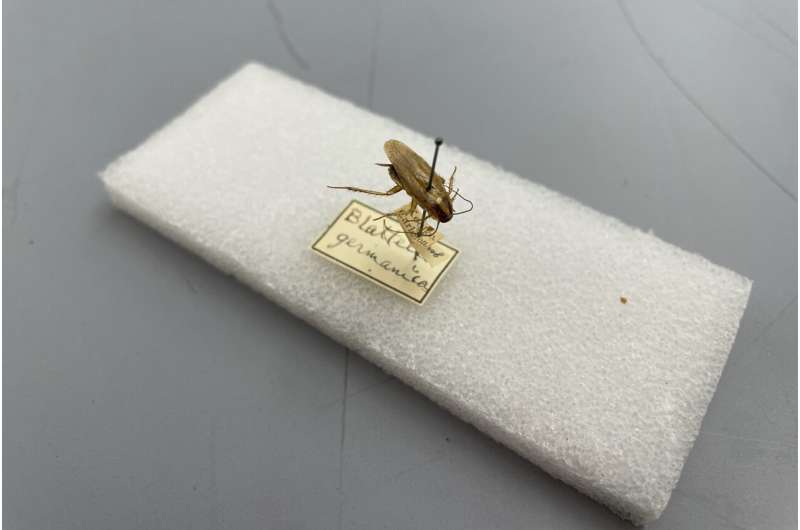
They're six-legged, hairy home invaders that just won't die, no matter how hard you try.
Cockroaches are experts at surviving indoors, hiding in kitchen pipes or musty drawers. But they didn't start out that way.
A uses genetics to chart cockroaches' spread across the globe, from humble beginnings in southeast Asia to Europe and beyond. The findings span thousands of years of cockroach history and suggest the pests may have scuttled across the globe by hitching a ride with another species: people.
"It's not just an insect story," said Stephen Richards, an assistant professor at Baylor College of Medicine who studies insect genes and was not involved with the study. "It's an insect and humanity story."
Researchers analyzed the genes of over 280 cockroaches from 17 countries and six continents. They confirmed that the German cockroach—a species found worldwide—actually originated in southeast Asia, likely evolving from the Asian cockroach around 2,100 years ago. Scientists have long suspected the German cockroach's Asian origins since similar species still live there.
The research was published Monday in the journal Proceedings of the National Academy of Sciences.
-
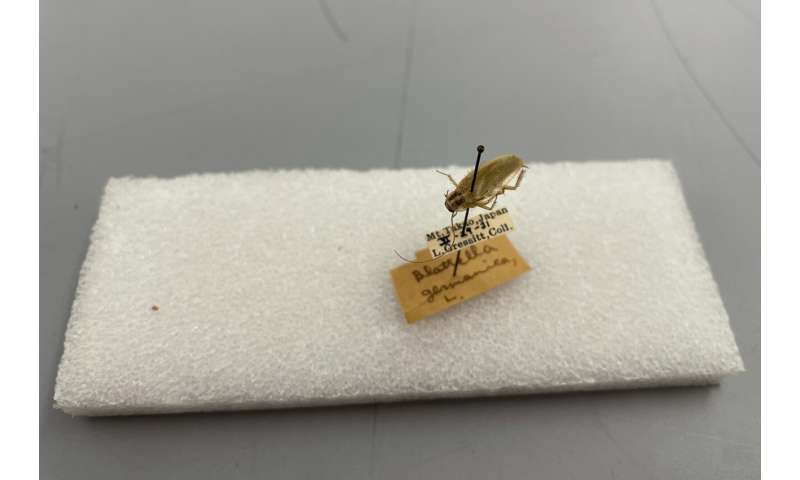
This photo provided by Qian Tang shows a German cockroach, a specimen from Harvard Museum of Comparative Zoology, Friday, May 17, 2024, in Cambridge, Mass. A new study, published Monday, May 20, in the journal Proceedings of the National Academy of Sciences, tracks how cockroaches spread around the globe to become the survival experts we know today. Credit: Qian Tang via AP -
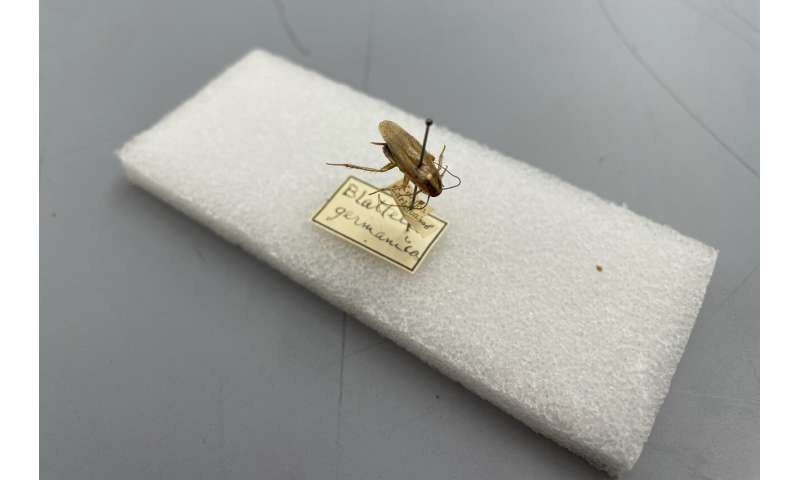
This photo provided by Qian Tang shows a German cockroach, a specimen from Harvard Museum of Comparative Zoology, Friday, May 17, 2024, in Cambridge, Mass. A new study, published Monday, May 20, in the journal Proceedings of the National Academy of Sciences, tracks how cockroaches spread around the globe to become the survival experts we know today. Credit: Qian Tang via AP -
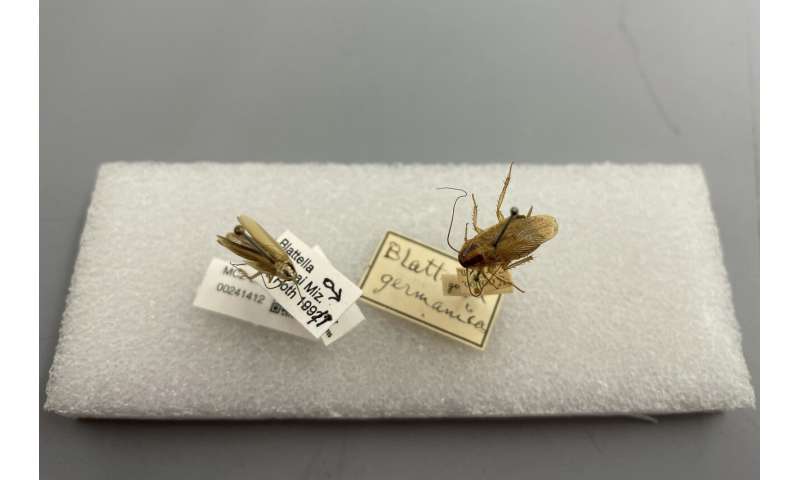
This photo provided by Qian Tang shows a German cockroach and an Asian cockroach, specimens from Harvard Museum of Comparative Zoology, Friday, May 17, 2024, in Cambridge, Mass. A new study, published Monday, May 20, in the journal Proceedings of the National Academy of Sciences, tracks how cockroaches spread around the globe to become the survival experts we know today. Credit: Qian Tang via AP -
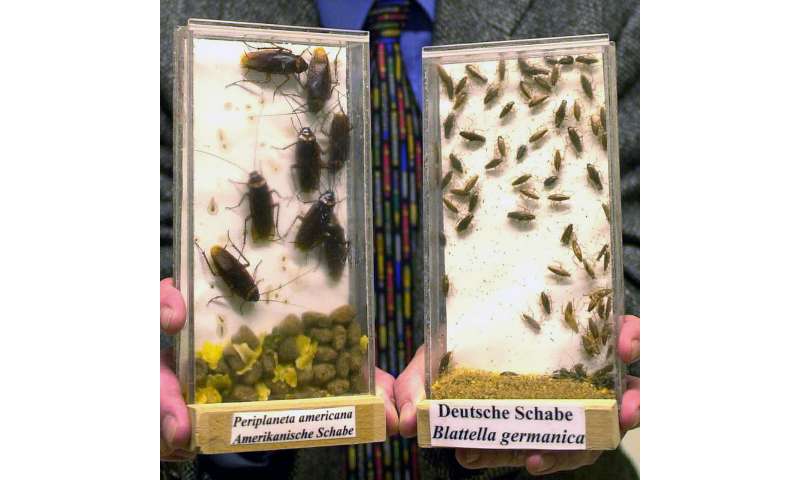
A biologist shows examples of American cockroaches (Periplaneta americana) and German cockroaches (Blattella germanica) at a lab in Monheim, Germany, March 5, 2001. A new study, published Monday, May 20, in the journal Proceedings of the National Academy of Sciences, tracks how cockroaches spread around the globe to become the survival experts we know today. Credit: AP Photo/Hermann J. Knippertz, File
The cockroaches then globe-trotted via two major routes. They traveled west to the Middle East about 1,200 years ago, perhaps hitchhiking in soldiers' breadbaskets. And they may have stowed away on Dutch and British East India Company trade routes to get to Europe about 270 years ago, according to scientists' reconstruction and historical records.
Once they arrived, inventions like the steam engine and indoor plumbing likely helped the insects travel further and get cozy living indoors, where they are most commonly found today.
Researchers said exploring how cockroaches conquered past environments may lead to better pest control.
Modern-day cockroaches are tough to keep at bay because they evolve quickly to resist pesticides, according to study author Qian Tang, a postdoctoral researcher studying insects at Harvard University.
More information: Qian Tang et al, Solving the 250-year-old mystery of the origin and global spread of the German cockroach, Blattella germanica, Proceedings of the National Academy of Sciences (2024).
Journal information: Proceedings of the National Academy of Sciences
© 2024 The Associated Press. All rights reserved. This material may not be published, broadcast, rewritten or redistributed without permission.



















